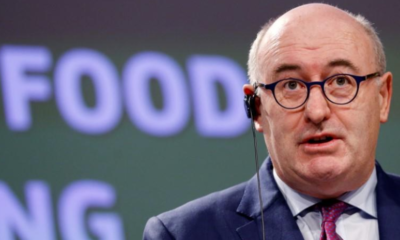WORLD NEWS
Waiting For May, Brussels Eyes December Brexit Deal
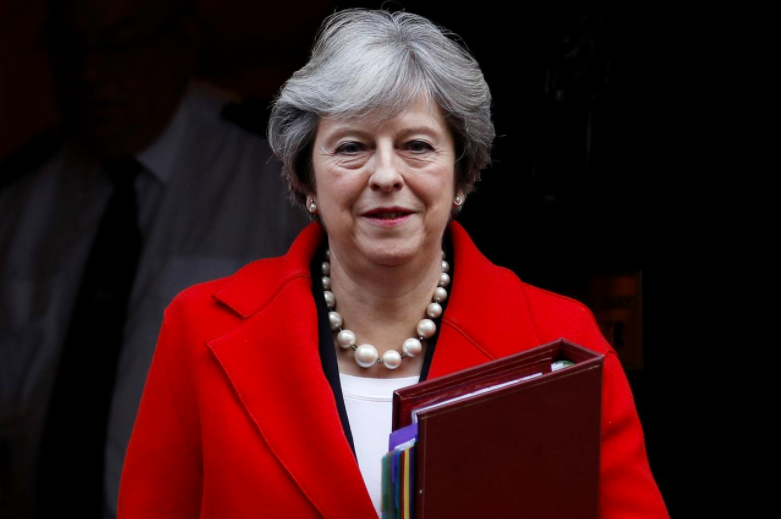
BRUSSELS (Reuters) – When Theresa May visits Brussels on Friday, EU negotiators will be listening intently for signs the British prime minister is preparing to risk a domestic backlash and raise her offer to secure a Brexit deal in December.
European Union officials and diplomats from the other 27 member states involved in the process hope that within a week to 10 days of meeting European Council President Donald Tusk, during a summit with ex-Soviet neighbors, May will deliver movement on three key conditions so that her EU peers can launch a new phase of Brexit negotiations when they meet on Dec. 14-15.
“I feel the tectonic plates moving now,” a diplomat handling Brexit for an EU government said. “Time is running out and a failure in the December Council would serve nobody’s purpose.”
There has been only a day of top-level talks between the two lead negotiators since a mid-October summit that dismissed May’s call for immediate talks on a future trade agreement.
But talks are continuing apace behind the scenes, participants say, ahead of a deadline of early December to strike a deal which can then be fully formalized by the 27 government leaders at the summit.
Hopes have been raised by reports in British media that May has secured backing from pro-Brexit hardliners in her cabinet to increase the amount of a financial settlement of what Britain owes to the Union when it leaves in March 2019.
May’s room for maneuver to cut a deal that would please business while irritating Britons who want a sharper break with Brussels is limited. And Germany and France, the Union’s lead powers have taken a tough line so far.
With German Chancellor Angela Merkel distracted at home by a search for a new coalition, May can expect little focus from her to help smooth a deal, several diplomats said, leaving it quite possible that December will not see an end to deadlock.
“That would create some kind of crisis in negotiations,” the second EU official said, noting that time was already short to complete a treaty by late next year to ensure an orderly Brexit.
“But maybe that is necessary.”
TUSK MEETS BARNIER
EU negotiator Michel Barnier, who met Tusk on Wednesday to prepare Tusk’s Friday meeting with May, had been expected to hold a formal round of talks with British Brexit Secretary David Davis in the week starting Dec. 4.
But EU officials say planning is all still up in the air. There could be a high-level meeting as soon as next week, possibly on Friday, Dec. 1, one said.
The sides already believe they are quite close on agreeing the scope of rights for expatriate citizens in Britain and on the continent, though the EU will be particularly looking to pin Britain down to accepting its demands that any agreement be subject to enforcement through the Union’s legal system.
The third key criterion for moving to Phase Two, an outline agreement on how to avoid the new EU-UK land border disrupting the peace in Northern Ireland, remains a potential stumbling block. Differences of opinion between London and Dublin have been marked this month, worrying EU officials.
However, it is the financial settlement that has been the most concern for the past few months and that, they believe, could be resolved by a combination of May stating clearly that Britain will pay a share after leaving of two major EU budget lines, staff pensions and agreed but undisbursed spending.
British press reports, seen in Brussels as planted leaks from May’s team, suggesting she might offer to pay something like 40 billion pounds ($53 billion) have encouraged EU negotiators.
While that is well short of the 60 billion euros ($71 billion) the European Commission has mentioned, that was always seen by EU officials as a maximum demand. And they are willing, they say, to help May massage the public messaging of the amount in order to limit the political flak she takes at home.
“On presentational issues, Barnier is ready to help, not to call things by their real name,” an EU official said.
Sourced From: Reuters: World News

WORLD NEWS
Singapore Reports 931 New Coronavirus Cases, Taking Total To 13,624
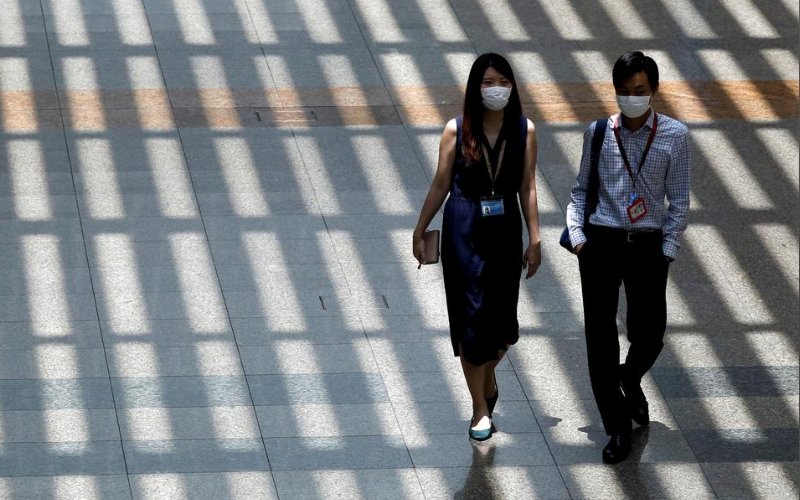
Singapore registered 931 new coronavirus infections, its health ministry said on Sunday, taking the city-state’s total number of COVID-19 cases to 13,624.
The vast majority of the new cases are migrant workers living in dormitories, the health ministry said in the statement. Fifteen of the new cases are permanent residents.
The number of new cases rose from 618 reported on Saturday.
The tiny country of 5.7 million people now has one of the highest infection rates in Asia, according to official figures, due to outbreaks in cramped dormitories housing over 300,000 mainly South Asian workers.
Sourced From: Reuters: World News
WORLD NEWS
Spain’s Kids Prepare For Freedom After Six-Week Lockdown
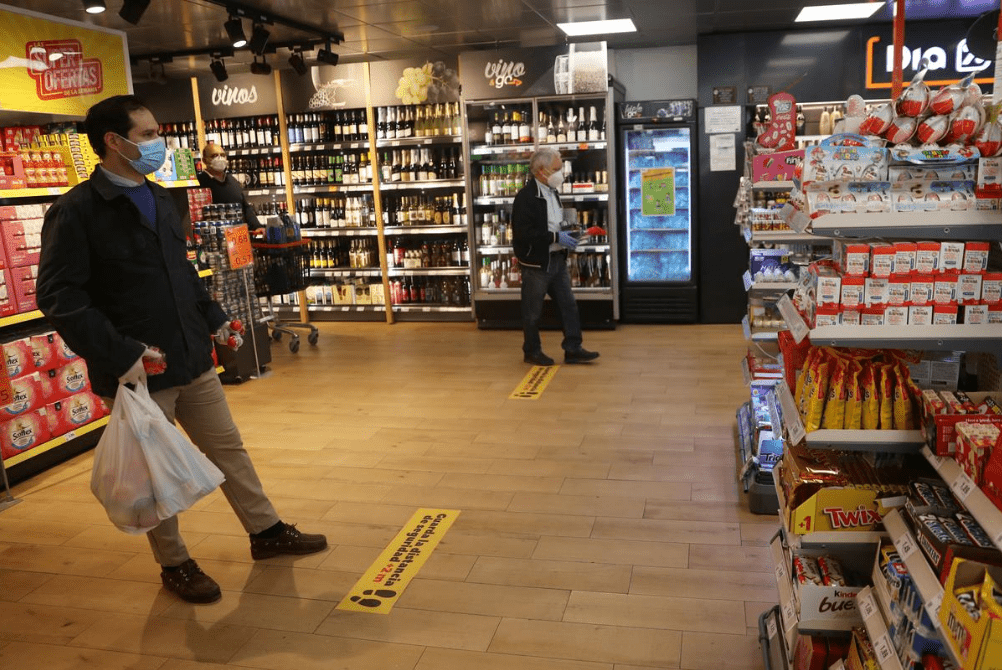
Spain released guidelines on Saturday allowing children to go outside after six weeks living under one of Europe’s strictest lockdowns, as figures showed a daily coronavirus death toll of 378, up slightly on Friday’s 367, the lowest in the past month.
The total of fatalities rose to 22,902 and Spain’s Health Ministry said the overall number of coronavirus cases rose to 223,759 from 219,764 the day before.
Yet Spain sees enough evidence of the virus being under control to start easing its lockdown. Children were trying out their masks in anticipation of their first taste of fresh air since Prime Minister Pedro Sanchez declared a state of emergency on March 14.
The government said under 14s will from Sunday be allowed up to one hour of supervised outdoor activity per day between 9am and 9pm, staying within one kilometre of their home.
Adults can accompany up to three children, who will not be allowed to use playparks and must adhere to social distancing guidelines, remaining at least two metres from other people.
The government has not yet said when confinement measures will be eased for older children.
In Pineda de Mar, northeast Spain, volunteer seamstresses were hard at work making face masks for children ahead of the deconfinement measure.
“More than 100 people are making protective equipment,” the town’s mayor Xavier Amor told Reuters. “We started with masks and then we followed the demand of hospitals, health centres, and nursing homes.”
As bars and restaurants eye a gradual reopening one company is devising safety measures to encourage wary clients to return.
Leganes-based LlenaTuBar, whose name translates as fill up your bar, is fitting dining tables with clear plastic screens to protect customers and installing thermal cameras to detect any patrons with a fever.
“It’s a critical situation for the hospitality sector and if we’re locked down much longer, people will struggle to reopen their businesses,” owner Manuel Gil told Reuters.
As the economic fallout from the virus continues to build, Prime Minister Pedro Sanchez reiterated calls for a pan-European response.
“The depth of the economic downturn and the risk that its effects will persist after the health emergency requires that a foundation be laid for a rapid, balanced, environmentally sustainable and socially just recovery,” Sanchez wrote in a piece for newspaper Expansion on Saturday.
The Health Ministry on Friday changed the methodology for logging cases of the virus. It will no longer count antibody tests and will only include positive results from PCR tests.
Discounting antibody tests puts Saturday’s total number of cases at 205,905 and Friday’s at 202,990.
Sourced From: Reuters: World News
WORLD NEWS
Putin Exploits Coronavirus To Justify Centralized Russian Power
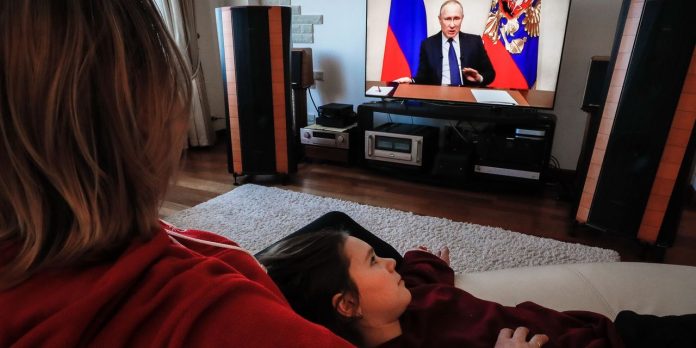
MOSCOW —The coronavirus pandemic has given Russian President Vladimir Putin a fresh opportunity to drive home for worried Russians a recurring theme of his long reign: Western liberal democracies are weak, globalism is fragile and the Russian model of centralizing power in a strong leader is superior in times of crisis.
Throughout much of the pandemic, the Kremlin leader has sought to project strength and calm, assuring his people that the spread of the new coronavirus is under control in Russia, even as it has killed 14,000 and likely more.
Sourced From: NewsPrime.Org
Tribune
Bill Gates Spends $200m On Toilet Turning Human Waste To Fertilizer
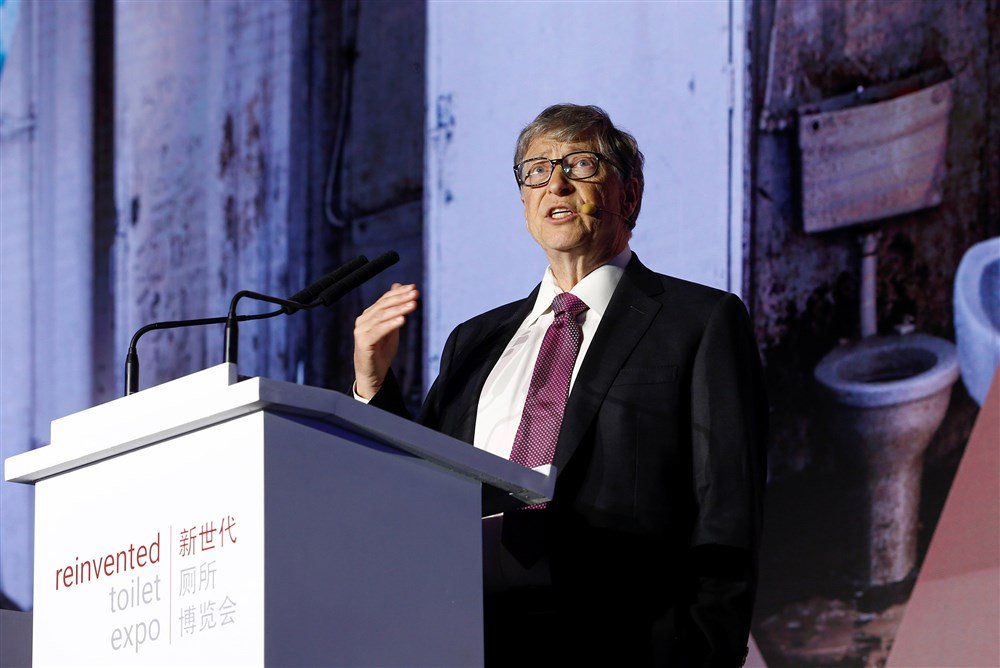
Microsoft co-founder Bill Gates unveiled a futuristic toilet Tuesday that doesn’t need water or sewers and uses chemicals to turn human waste into fertilizer.
It is the brainchild of research projects funded by the Bill and Melinda Gates Foundation, the world’s biggest private philanthropy organization.
There are multiple designs of the toilet but all work by separating liquid and solid waste, Reuters said.
“The current toilet simply sends the waste away in the water, whereas these toilets don’t have the sewer,” Gates said. “They take both the liquids and solids and do chemical work on it, including burning it in most cases.”
He compared the change from traditional toilets to waterless models as similar to development in computing around the time he founded Microsoft in the mid-1970s.
“In the way that a personal computer is sort of self-contained, not a gigantic thing, we can do this chemical processing at the household level,” he said.
Poor sanitation kills half a million children under the age of five annually and costs $ 200 billion a year in healthcare costs and lost income worldwide, according to the foundation.
Gates’ foundation has committed roughly $ 200 million to the toilet project and expects to spend the same amount again before the toilets are viable for widespread distribution.
During a speech at an event in Beijing, Gates held up a clear jar of human faeces to illustrate the importance of improving sanitation.
“It’s a good reminder that in (the jar) there could be 200 trillion rotavirus cells, 20 billion Shigella bacteria, and 100,000 parasitic worm eggs,” he said.
Gates said the next step for the project is to pitch the concept to manufacturers, saying he expects the market for the toilets to be over $ 6 billion by 2030.
The billionaire also lauded the globalized and free trade systems that made the toilet technology possible.
“I honestly believe trade allows every country to do what it’s best at,” he told Reuters in an interview. “So when I talk about components of this toilet being made in China, others in Thailand, others in the United States, you really want to be bringing together all of that IQ so that you’re getting that combination.”
Sourced From: Tribune

